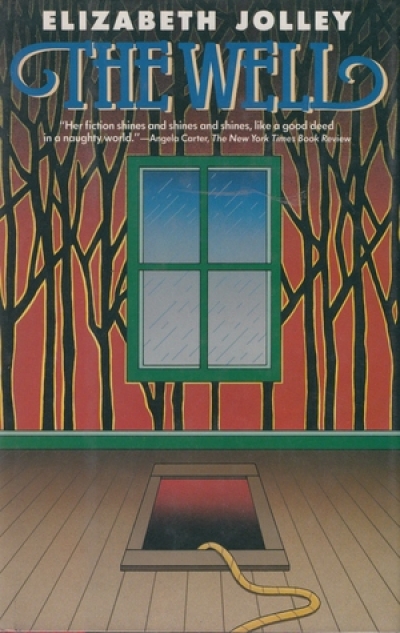Fiction
Fiction which is well-choreographed is difficult to resist. Joan London’s first collection of short stories, Sister Ships, is a dancerly go at mimesis; poised, unerring, it keeps its promises. And to run the tautological line between ‘literature’ and life, as all writing must, reminds us of the possibility for faux pas as well as the pas de deux; in one instance, an amnesia as to what has already been said, and in the other, stories which are so gracefully designed that they can say the same thing twice, or more, and we remember and witness such repetitions with pleasure.
... (read more)Brett D’Arcy’s novel, arrestingly titled The Mindless Ferocity of Sharks, is one of the most unusual and accomplished to be published in Australia for years. The setting is a decaying town called the Bay on the coast of Western Australia, south of Perth. Its abattoir and tanneries have long since closed. The locals are sufficiently hostile to have fended off development – so far. They endure the summer invasion of the ‘townies’ who come for the great surfing. During the rest of the year, they enjoy it without interruption.
... (read more)In the early seventies, the rock band Skyhooks asked ‘Whatever happened to the revolution?’ They answered themselves in the next line: ‘We all got stoned and it drifted away.’
... (read more)The Delinquents by Criena Rohan & Down by the Dockside by Criena Rohan
Given the appetite of the literary industry, it’s hard to believe that a good thing can go unnoticed for long. But it happens. Occasionally the manuscript of an unheard-of author, or the out-of-print book of a forgotten one, finds its way into the hands of an influential member of the literary establishment – and from there to the rest of us. It’s a big event. Not only does it lend credibility to the old Shakespeare’s sister story (or one of its variants), but it indicates that, even in this over-determined world, it is still possible to be surprised.
... (read more)With her first novel (published in 1985 and now available in paperback), publisher and writer Stephanie Dowrick has created a long and uneven though often absorbing work, tracing the life of Zoë Delighty from birth to mature womanhood. It is a testament to the heroine’s survival of the vicissitudes of her active life, and her struggle to counter the malign influences of her girlhood which dog her through her attempts to engage herself creatively in life.
... (read more)Pushed from the Wings: An entertainment by Ross Fitzgerald (illustrated by Alan Moir)
By the time I was 35, I’d spent fifteen years as a student and teacher in universities. I was scornful of those who sneered at ‘Sheltered Workshops’ – a fashionable putdown in the early 70s; at the same time, I mocked Zelman Cowan’s observation – when playing stag at bay and asserting that he really was au fait with academia – that ‘I have spent all my adult life in universities’. But they are real places.
... (read more)A common approach when talking about women writers is to outline the scope of their work, preferably to demonstrate and affirm its versatility and, implicitly, its value. There’s no doubt that Helen Garner, for example, has suffered under critics’ and reviewers’ insistence that her work deals only with a ...
... (read more)‘The Man of Slow Feeling’ is the title story of a selection of Michael Wilding’s short stories published between 1972 and 1985.
These stories vary widely in setting, content, character, tone, but Wilding’s voice is consistent. By ‘voice’ I mean that if I was given an unidentified story in an envelope I’d be able to tell if it was Wilding’s before I was halfway through. It would be a plain, sealed, brown-paper envelope, of course.
The voice I hear is that of the writer as condemned observer. It records experience, it records itself in the midst of experience, it records itself recording. The title story is apt: the man of slow feeling is broken in the attempt to record and experience at the same time. The voice telling the stories is so distinctive that very soon I gave up trying to keep writer and writing separate in my mind. Whether they are first person narratives or not, the stories are intensely personal. They always seem to reveal what the writer chooses to expose of himself.
... (read more)Room Service: Comic writings of Frank Moorhouse by Frank Moorhouse
Reading Frank Moorhouse is a bit like learning to cook silver beet in some newfangled way and discovering that for years you’ve been chucking the best bits out.
... (read more)Boss of the Pool by Robin Klein & The Princess Who Hated It by Robin Klein
I think it’s time for Robin Klein to slow down, though my ten-year-old daughter Finley wouldn’t thank me for saying so. She almost shivered with excitement last year as she told me that her teacher was reading a chapter of Hating Alison Ashley to the class each day. ‘I just can’t wait for the next bit,’ she said, ‘but I don’t want it to end.’
... (read more)









